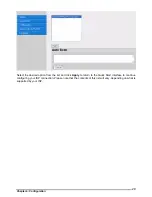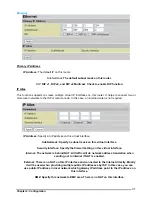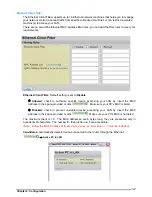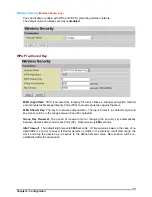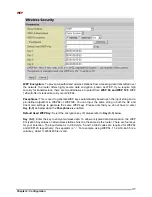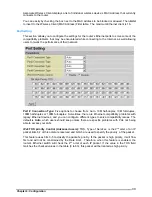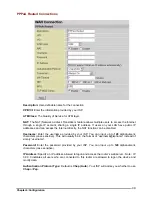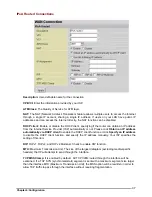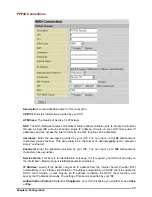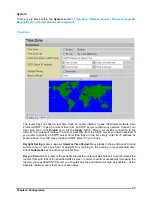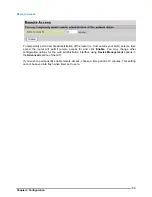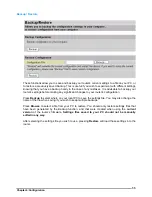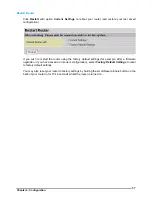
Chapter 4:Configuration
42
RFC 1483 Routed Connections
Description:
Your description of this connection.
VPI and VCI:
Enter the information provided by your ISP.
ATM Class:
The Quality of Service for ATM layer.
NAT:
The NAT (Network Address Translation) feature allows multiple users to access the Internet
through a single IP account, sharing the single IP address. If users on your LAN have public IP
addresses and can access the Internet directly, the NAT function can be disabled.
Encapsulation method:
Selects the encapsulation format, the default is LLC Bridged. Select the
one provided by your ISP.
DHCP client:
Enable or disable the DHCP client, specify if the Router can get an IP address from
the Internet Service Provider (ISP) automatically or not. Please click
Obtain an IP address
automatically via DHCP client
to enable the DHCP client function or click Specify an IP address
to disable the DHCP client function, and specify the IP address manually. Your ISP specifies the
setting of this item.
RIP:
RIP v1, RIP v2, and RIP v2 Multicast. Check to enable RIP function.
MTU:
Maximum Transmission Unit. The size of the largest datagram (excluding media-specific
headers) that IP will attempt to send through the interface.
TCP MSS Clamp:
It is enabled by default. All TCP traffic routed through the interface will be
examined. If a TCP SYN (synchronize/start) segment is sent with a maximum segment size larger
than the interface MTU (Maximum Transmission Unit), the MSS option will be rewritten in order to
allow TCP traffic to pass through the interface without requiring fragmentation.


